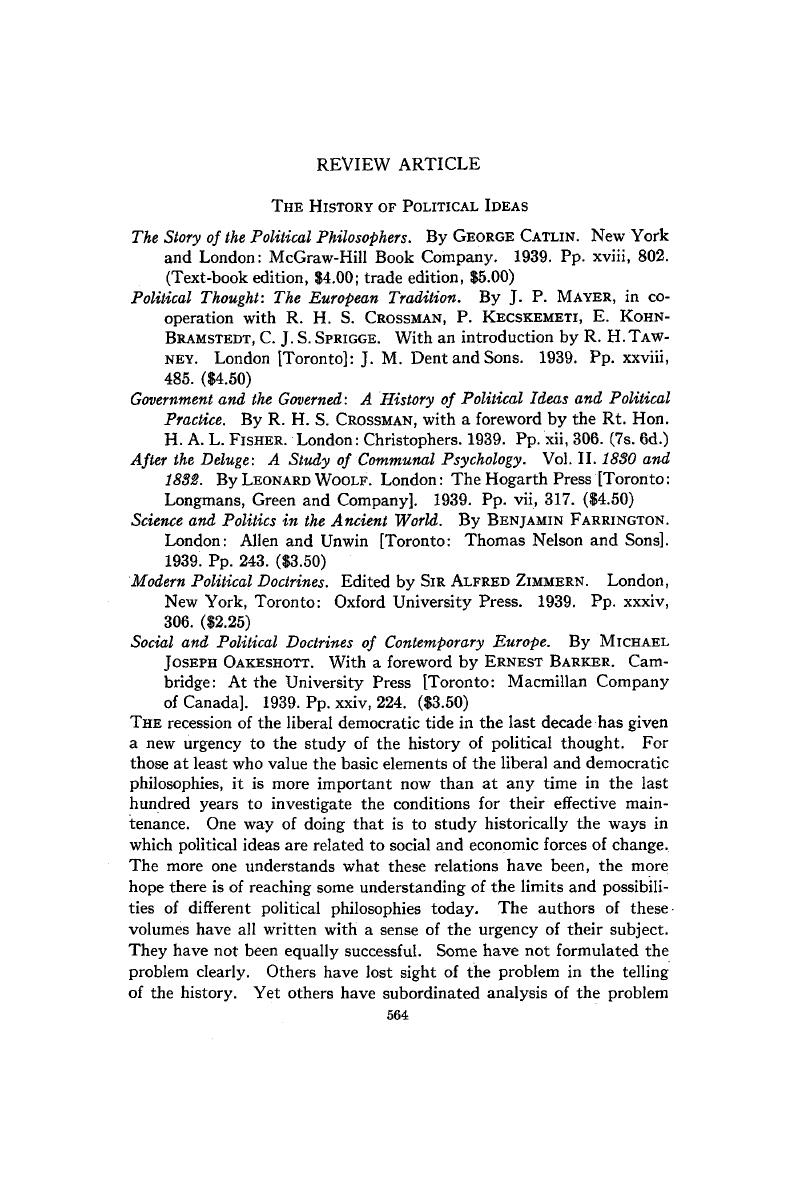Published online by Cambridge University Press: 07 November 2014

1 Another prerequisite according to Mr. Catlin, is that a new science of politics should be developed which will make power subservient to these values. In an interesting discussion of the prospects for a new science of politics, he recommends the method of what he calls the Chicago school, with which he identifies himself. This method, as seen in his summary, is abstract and unhistorical. It deals with “the political man” and “the political act,” and with political power relations abstracted from economic power relations. The measure of abstraction in the analysis is the measure of the inapplicability of the results to the complex world. The method can of course be defended insofar as the complexities from which the political man is abstracted are re-introduced; but the method itself is not conducive to the historical induction which this requires.
2 Cf. Mr. Crossman's analysis discussed on p. 570.
3 Woolf, Leonard, After the Deluge: A Study of Communal Psychology, vol. I (London, New York, 1931).Google Scholar
4 In volume I Mr. Woolf shows that democratic ideas developed out of the new attitude towards, and consciousness of, individuality, which became marked in the seventeenth and eighteenth centuries. He does not, however, investigate the sources of this new attitude, nor its connection with previous economic and class change.